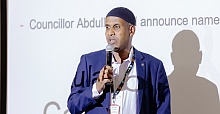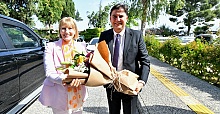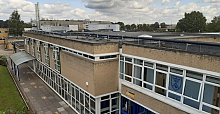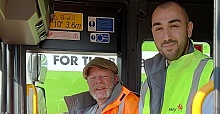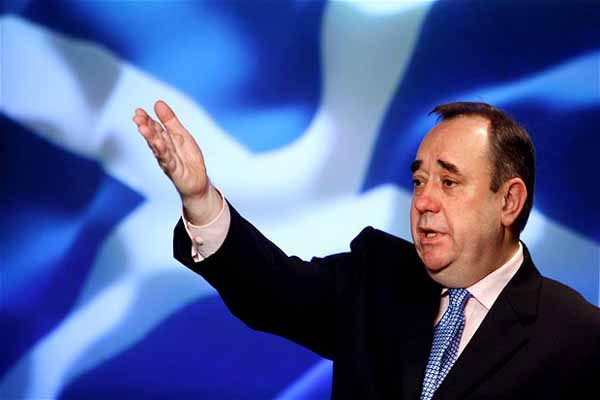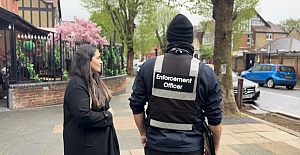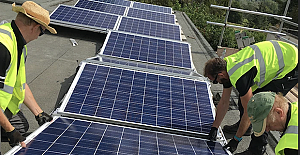Scotland's future will be debated in a final TV showdown on Monday just weeks before a historic independence referendum with the pro-breakaway camp, behind in the polls, looking for a game-changing performance from its leader. As voting day, Sept. 18, draws nearer, polls show that the campaign to sever Scotland's 307-year union with England and leave the United Kingdom is trailing in the polls, as it generally has been from the start. Several recent polls have shown its support climbing a few points, but according to the most recent "poll of polls" on Aug. 15, based on an average of the last six polls and excluding undecided respondents, support for the pro-independence camp stands at 43 percent against 57 percent for opponents. However, Alex Salmond, the leader of the pro-independence Scottish National Party (SNP), enjoys a reputation as a canny campaigner who has unexpectedly won elections in the past. "It's the last real public chance to reach a large audience," Patrick Brione, director of research at pollster Survation, said of Monday's TV debate. "Salmond is very much the underdog at the moment, so he really needs to pull off an impressive performance."
The debate is expected to centre on three issues: if and how an independent Scotland could keep the pound, how many barrels of oil are left in the North Sea, and whether Scotland's publicly funded health service would be better off in a breakaway state.
Salmond unexpectedly failed to dominate the first such TV debate, on Aug. 5, in which Alistair Darling, the leader of the anti-independence "Better Together" campaign, put him on the spot over the issue of currency arrangements in an independent Scotland.
The question is one that opponents of independence have long pushed for an answer to. Yet Salmond seemed blindsided by Darling's persistence and failed to spell out what his "plan B" would be if the British government refused to formally share the pound, his preferred option.
All three major UK-wide parties have ruled out such a union; Salmond predicts their position will change if there's a "yes" vote.
"Going into the previous debate he was the favourite, and as a result of that people thought that he lost the debate," Survation's Brione said of Salmond.
"Darling benefited very much from people not expecting him to do well going into the first debate. His performance, however good as it was, was made to look better."
According to a snap poll, Darling, seen as a safe pair of hands but as somewhat uninspiring, won that debate.
Salmond has said he wished he'd better explained his currency plans and has promised to do so in Monday's debate.
A spokesman for the pro-independence "Yes Scotland" campaign said on Sunday the debates were important because they reached a very large audience. But he emphasised the breadth of the movement's grassroots campaign, which he said gave it an edge.
Douglas Alexander, the Labour party's foreign affairs spokesman and an opponent of independence, said the nationalist campaign was in trouble.
"For them to be in a position with just days to go until postal ballots drop where they cannot answer the most fundamental question in relation to what currency Scotland would use... is genuinely not where they expected to be," he said.
reuters


 Prime Minister Keir Starmer's 2025 Easter message
Prime Minister Keir Starmer's 2025 Easter message After Nesil Caliskan a by-election will be held in Jubilee ward in Enfield
After Nesil Caliskan a by-election will be held in Jubilee ward in Enfield Publishing the analysis, Labour’s Cllr Ergin Erbil said Everybody in Enfield deserves basic rights
Publishing the analysis, Labour’s Cllr Ergin Erbil said Everybody in Enfield deserves basic rights Gaza-Israel conflict Statement from Cllr Ergin Erbil, Leader of Enfield Council
Gaza-Israel conflict Statement from Cllr Ergin Erbil, Leader of Enfield Council UK AMBASSADOR TO TURKEY VISITS FETHIYE
UK AMBASSADOR TO TURKEY VISITS FETHIYE Journalists from Europe held the Turkish Media Workshop in Skopje
Journalists from Europe held the Turkish Media Workshop in Skopje The European Union called on Turkey to uphold democratic values
The European Union called on Turkey to uphold democratic values Turkish citizens in London said Rights, Law, Justice
Turkish citizens in London said Rights, Law, Justice The 'Prince of Paris' has impressed in his first EuroLeague season
The 'Prince of Paris' has impressed in his first EuroLeague season Saran Media And Euroleague Basketball Extend Media Rights Partnership for Four More Years
Saran Media And Euroleague Basketball Extend Media Rights Partnership for Four More Years Will Rangers be Jose Mourinho’s next victim?
Will Rangers be Jose Mourinho’s next victim? Jose Mourinho's Fenerbahce face Rangers on Thursday
Jose Mourinho's Fenerbahce face Rangers on Thursday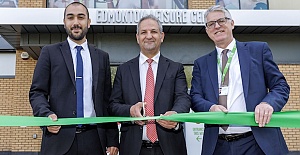 Residents welcomed back to Edmonton Leisure Centre
Residents welcomed back to Edmonton Leisure Centre Barclays has become the biggest UK lender so far to cut mortgage rates
Barclays has become the biggest UK lender so far to cut mortgage rates THE SPRING STATEMENT EXPLAINED, UK ECONOMIC OUTLOOK AND GROWTH FORECASTS
THE SPRING STATEMENT EXPLAINED, UK ECONOMIC OUTLOOK AND GROWTH FORECASTS Launch of Made in Enfield gift shop to celebrate local artists and designers
Launch of Made in Enfield gift shop to celebrate local artists and designers
